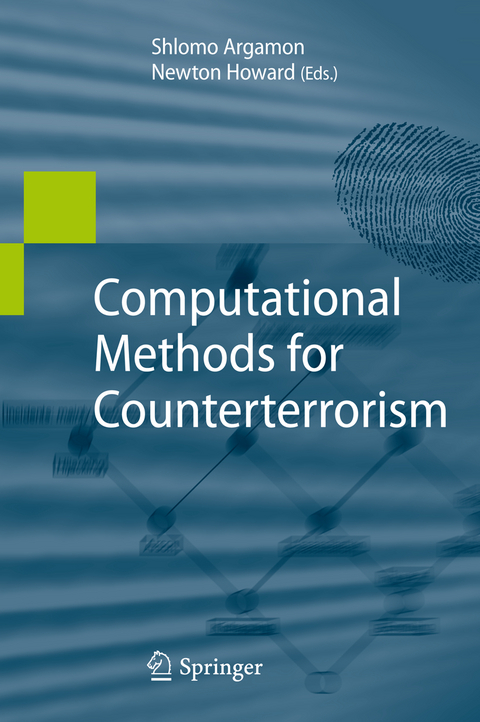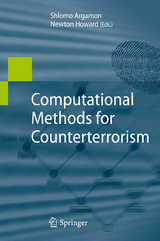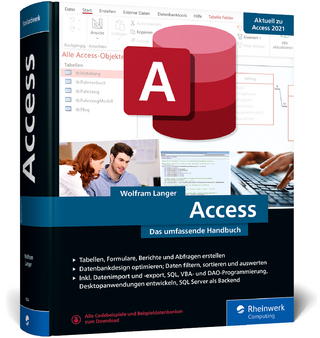Computational Methods for Counterterrorism
Springer Berlin (Verlag)
978-3-642-01140-5 (ISBN)
Modern terrorist networks pose an unprecedented threat to international security. The question of how to neutralize that threat is complicated radically by their fluid, non-hierarchical structures, religious and ideological motivations, and predominantly non-territorial objectives. Governments and militaries are crafting new policies and doctrines to combat terror, but they desperately need new technologies to make these efforts effective.
This book collects a wide range of the most current computational research that addresses critical issues for countering terrorism, including:
- Finding, summarizing, and evaluating relevant information from large and changing data stores;
- Simulating and predicting enemy acts and outcomes; and
- Producing actionable intelligence by finding meaningful patterns hidden in huge amounts of noisy data.
The book's four sections describe current research on discovering relevant information buried in vast amounts of unstructured data; extracting meaningful information from digitized documents in multiple languages; analyzing graphs and networks to shed light on adversaries' goals and intentions; and developing software systems that enable analysts to model, simulate, and predict the effects of real-world conflicts.
The research described in this book is invaluable reading for governmental decision-makers designing new policies to counter terrorist threats, for members of the military, intelligence, and law enforcement communities devising counterterrorism strategies, and for researchers developing more effective methods for knowledge discovery in complicated and diverse datasets.
Shlomo Argamon is Associate Professor of Computer Science at the Illinois Institute of Technology, Chicago, IL, USA, since 2002. Prior to that, he had held academic positions at Bar-Ilan University, where he held a Fulbright Postdoctoral Fellowship (1994-96), and at the Jerusalem College of Technology. Dr. Argamon received his B.S. (1988) in Applied Mathematics from Carnegie-Mellon University, and his M.Phil. (1991) and Ph.D. (1994) in Computer Science from Yale University, where he was a Hertz Foundation Fellow. His current research interests lie mainly in the use of machine learning methods to aid in functional analysis of natural language, with particular focus on questions of style. During his career, Dr. Argamon has worked on a variety of problems in experimental machine learning, including robotic map-learning, theory revision, and natural language processing, and has published numerous research papers in these areas.
I Information Access.- On Searching in the #x201C;Real World#x201D;.- Signature-Based Retrieval of Scanned Documents Using Conditional Random Fields.- What Makes a Good Summary?.- A Prototype Search Toolkit.- II Text Analysis.- Unapparent Information Revelation: Text Mining for Counterterrorism.- Identification of Information.- Rich Language Analysis for Counterterrorism.- III Graphical Models.- Dicliques: Finding Needles in Haystacks.- Information Superiority via Formal Concept Analysis.- Reflexive Analysis of Groups.- Evaluating Self-Reflexion Analysis Using Repertory Grids.- IV Conflict Analysis.- Anticipating Terrorist Safe Havens from Instability Induced Conflict.- Applied Counterfactual Reasoning.- Adversarial Planning in Networks.- Gaming and Simulating Ethno-Political Conflicts.
| Erscheint lt. Verlag | 15.7.2009 |
|---|---|
| Zusatzinfo | XVIII, 306 p. |
| Verlagsort | Berlin |
| Sprache | englisch |
| Maße | 155 x 235 mm |
| Gewicht | 708 g |
| Themenwelt | Informatik ► Datenbanken ► Data Warehouse / Data Mining |
| Schlagworte | ACCESS • Artificial Intelligence • counterterrorism • Data Mining • formal concept analysis • Information Retrieval • Knowledge Discovery • Networks • security • terrorism • Terrorist • text analyis • Text Mining • text search |
| ISBN-10 | 3-642-01140-3 / 3642011403 |
| ISBN-13 | 978-3-642-01140-5 / 9783642011405 |
| Zustand | Neuware |
| Haben Sie eine Frage zum Produkt? |
aus dem Bereich




